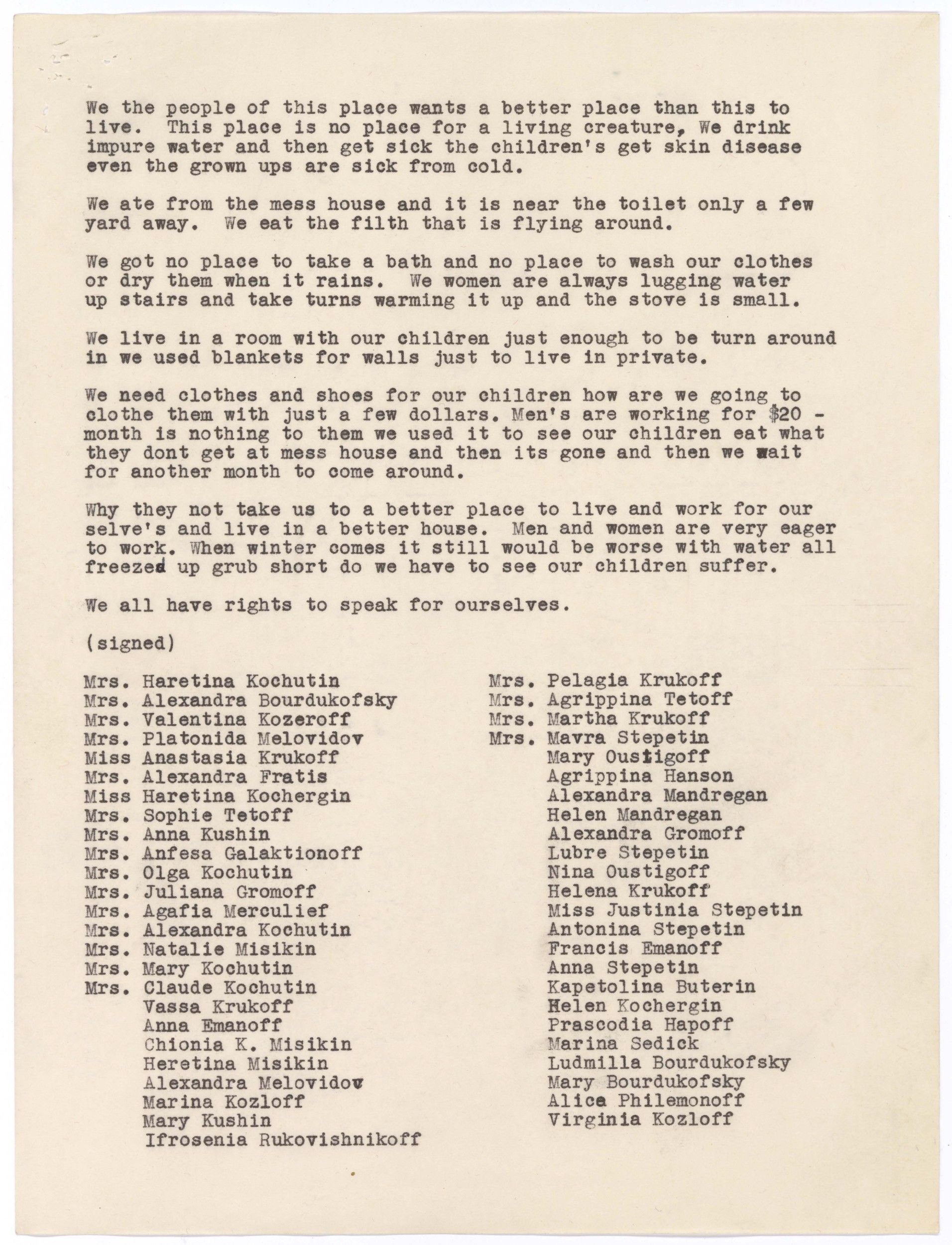Aleut Womens Petition
10/10/1942
Add to Favorites:
Add all page(s) of this document to activity:

Aleut/Unangax̂ women in the Pribilof Islands Program sent this petition criticizing their living conditions at the Funter Bay Evacuation Camp in southeastern Alaska during World War II.
In June 1942, Japan bombed Dutch Harbor and occupied Attu and Kiska Islands (in the Aleutian Islands). Japanese forces took the Aleuts/Unangax̂ from Attu hostage, sending them to Japan as prisoners of war. The United States relocated 881 Aleut/Unangax̂ from the Aleutian and Pribilof Islands to four internment camps in southeast Alaska.
On their return in 1944 and 1945, some Aleuts/Unangax̂ found their villages leveled, while others found their homes and property had been vandalized, looted, or destroyed by American troops.
While their men were forced to return to the Pribilof Islands to harvest seals for the Government, the Aleut women remained at the Funter Bay Evacuation Camp. They petitioned for better conditions, which were so poor that disease and other causes resulted in a 10-percent death rate.
In June 1942, Japan bombed Dutch Harbor and occupied Attu and Kiska Islands (in the Aleutian Islands). Japanese forces took the Aleuts/Unangax̂ from Attu hostage, sending them to Japan as prisoners of war. The United States relocated 881 Aleut/Unangax̂ from the Aleutian and Pribilof Islands to four internment camps in southeast Alaska.
On their return in 1944 and 1945, some Aleuts/Unangax̂ found their villages leveled, while others found their homes and property had been vandalized, looted, or destroyed by American troops.
While their men were forced to return to the Pribilof Islands to harvest seals for the Government, the Aleut women remained at the Funter Bay Evacuation Camp. They petitioned for better conditions, which were so poor that disease and other causes resulted in a 10-percent death rate.
This primary source comes from the Records of the U.S. Fish and Wildlife Service.
National Archives Identifier: 2641505
Full Citation: Aleut Womens Petition; 10/10/1942; Subject Files, 1923 - 1945; Records of the U.S. Fish and Wildlife Service, Record Group 22; National Archives at Seattle, Seattle, WA. [Online Version, https://docsteach.org/documents/document/aleut-womens-petition, April 26, 2024]Rights: Public Domain, Free of Known Copyright Restrictions. Learn more on our privacy and legal page.



